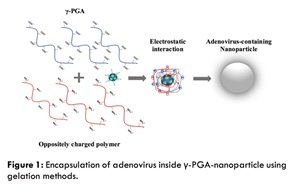
Iza K Radecka
University of Wolverhampton, UK
Title: Bacterial-Derived Gamma Polyglutamic Acid (γ-PGA) as a Protective Agent for Beneficial Viruses and its Potential Applications as a Smart Delivery System
Biography
Biography: Iza K Radecka
Abstract
Statement of the Problem: In recent years, there has been an increasing interest in adenoviral vector anti-cancer therapy. The induction of an immune response, high liver deposition and lack of tumor tropism upon systemic delivery, can be considered as major limitations with this kind of application. Moreover, the ability of beneficial viruses such as bacteriophages to persist for extended periods is limited by many factors including: sunlight, irradiation and temperature. Bacteriophages are viruses that invade specific bacteria and kill them. Their high specificity and their safety profile make them particularly attractive natural antibacterial products. However, significant research efforts have been focused on development of poly gamma glutamic acid (γ-PGA)-based micro/nanoparticles used as a vector. The biopolymer γ-PGA is an extracellular bacterial polymer, it is biodegradable, non-toxic and non-immunogenic polymer. In this study, γ-PGA was used to protect bacteriophage from harmful environmental conditions. Also, we introduced an antibody blind polymer coated-viral vector. Methodology & Theoretical Orientation: Bacterial synthesis of γ-PGA was performed in a fermenter. Produced polymer was identified by Fourier Transforming Infrared Spectroscopy (FTIR) and Nuclear Magnetic Resonance (NMR). The number average molecular mass (Mn) was determined by conventional aqueous based gel permeation chromatography (GPC). Different methods were performed to evaluate the possibility of using these micro/nanoparticles as a viral vector. These include single-emulsion method, simple ionic-gelation method and self-assembled NPs using precipitation and dialysis method.

Findings: Bacteriophage formulated with 1% γ-PGA showed significant increase in survival rate compared to non-formulated phage after the exposure to extreme environmental conditions, such as heat, different pH and UV light, over a period of time. Adenovirus was successfully encapsulated inside the biopolymer with encapsulation efficiency of 92% with particle size of 565 nm. The cytotoxicity study showed that the particles are not toxic. The results obtained and the unique characteristics of the polymer established in this research could provide reference for coating and controlled releasing of viral vector used in anti-cancer therapy.

